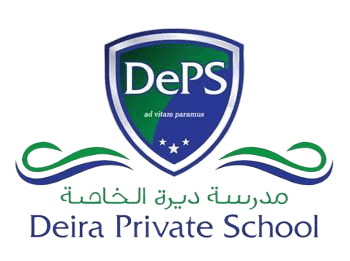

Downloads: Inclusion Policy (Summary)
and Inclusion Policy (In-Depth)
At DePS, we believe passionately in the importance of inclusion of all our children and strive to make sure these values are at the heart of our inclusion practices and integrated values. We are an inclusive school that caters for all the needs of students with special educational needs and/or disabilities.
We promote an inclusive ethos that aims to support all children by removing barriers to their inclusion whether for individuals or groups of children and respond to a spectrum of diverse needs by setting suitable challenges that are best placed to bring out the full potential from our children.
We welcome children with a variety of academic backgrounds, abilities, behavioural, socio-emotional and additional needs. The school strives to provide a safe, stimulating, supportive, happy and secure environment for children with mild to moderate special educational needs. We support our teachers as they enable students of determination to access all areas of the curriculum within the mainstream school environment and the community. We support our children to enable them to achieve their potential academically, socially and emotionally by recognising their individual differences, needs, strengths, experiences and interests. We support our parents as partners in the education of their child.
DePS is committed to providing the most effective provision to meet the needs of all students of determination with the opportunity to achieve their best by:
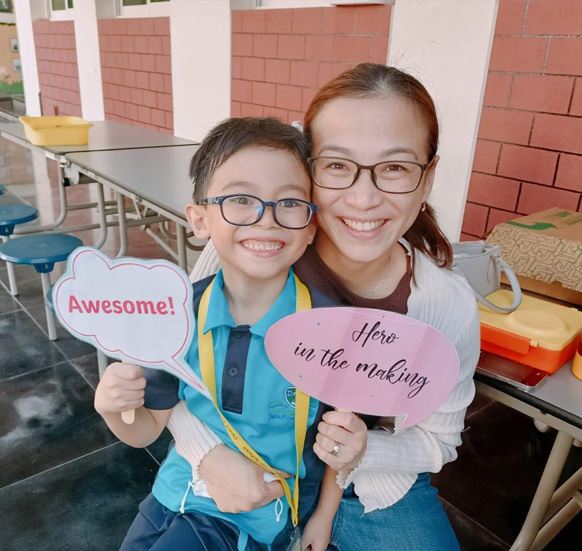
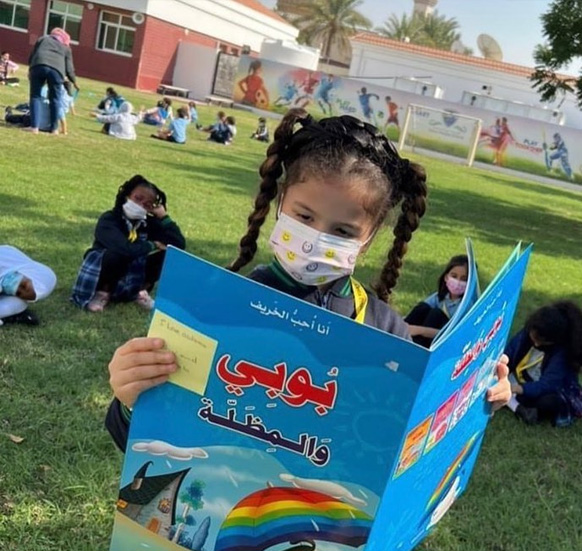
One of the most important principles of inclusive education is that no two learners are alike. At DePS, we are committed to meeting the needs of all our learners through our inclusive setting. DePS has a strong commitment to the inclusion and pastoral support of all our families and students; this includes students who are identified with Special Educational Needs and Disabilities, English as a Second Language, English Language Learners, High Achievers and Gifted and Talented Students.
Support for students begins at admission, with a thorough identification process to ensure that appropriate support is available; and continues with ongoing identification and support through the academic and student support networks.
Parents are encouraged to share any details of any special educational needs, individual education plans (IEPs) and any Educational Psychologist, Pediatric, or other specialist reports (e.g., Speech and Language or Occupational Therapy) if completed. Sharing educational history prior to a place being offered is essential so that staff can ensure an appropriate assessment of educational need. Admission is not conditional and students are not refused admission based only on their experience of a special education need or disability (SEND) and we give sibling priority for admission to students who experience SEND.
At DePS Schools, we offer inclusive provision with additional support, intervention, differentiation and personalisation, where appropriate. The whole school community is encouraged to ensure inclusion and the best possible social, emotional, behavioural and academic progress for all of our students. This is provided through innovative learning and teaching, dissemination of information, training and access to SEND specialists at all levels.
Inclusion is important to us at DePS. All our students need to feel they belong and their happiness and progress in learning is vital to our system.
Students of determination have a learning need that requires special educational provision to be made for them which is additional to, or different from, the differentiated curriculum provision made for students in the classroom.
Students who start their education in DePs with formal documentation of a specific diagnosis will be supported by an Individual Education Plan, produced by the SENDCO, within the first month of their arrival in the school.
Where appropriate, students will be encouraged to participate in their own IEP process.
DePS recognises the importance of early identification and intervention. DePS undertakes a Graduated Approach to the identification, assessment and support of students of determination. The approach recognises that there is a continuum of special educational needs and that, where necessary, increasing specialist expertise should be brought to bear on the difficulties that a child may experience.
The educational needs of the majority of students will be met in the classroom. The teacher tailors instruction to meet the student’s individual needs while maintaining high aspirations for expected attainment. The teacher plans activities to support the students to enable progress to be achieved.
The teacher may differentiate the content, the process, the products or the learning environment and/or may use on-going assessment and flexible grouping.
Children identified at Wave 1 are monitored closely to ensure that progress is being made and any obstacles to learning are overcome.
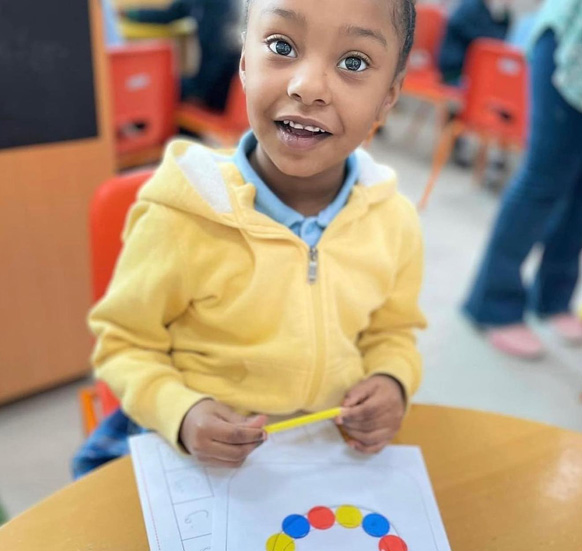

This stage is not exclusively for students with SEN and may include intervention methods such as Learning Support Plans (LSPs) and Behavioural Intervention Plans (BIP)
An Individual Education Plan (IEP) will be formulated for students requiring a higher level of differentiation or accommodation for academic, behavioural or social/emotional concerns.
The IEP will include the student’s area(s) of difficulty, the student’s strengths and areas of need and any accommodations that are in place to assist the student’s learning.
There will also be a set of specific targets, each one accompanied by the teaching strategies that will be employed to support them.
The IEP will be shared and approved by the parents
The IEP will be reviewed every six weeks, by the teacher, in consultation with the SENCO and the parent
Where the student does not, after an appropriate period of time, reach expected levels academically or in behaviour, or where the school believes that the student has an undiagnosed special educational need, the parents will be advised to seek external agencies for the diagnosis and support of additional needs. The resulting diagnosis will be supported by an IEP, written by the SENCO in consultation with the parents, the student’s teachers and, where appropriate, the student.
Gifted and talented students may be significantly ahead of the majority of their peers in one or more of the following areas:
It is recognised that some children may have dual exceptionality.
‘All rounders’ are children who are both gifted and talented.
In DePS, students who have been identified as gifted and talented will be educated with differentiated learning tasks to apply what they have learnt and extend the level of challenge, working in more depth in a range of different contexts. They will be provided with appropriate advanced learning opportunities and experiences to develop their potential and to satisfy their learning needs through the development of an Advanced Learning Plan (ALP).
Welcome to Deira Private School's English Language Learner (ELL) support programme, where excellence in education meets the art of effective communication. Our English Language Learner (ELL) provision stands as a testament to our commitment to nurturing well-rounded global citizens equipped with impeccable linguistic skills. In an increasingly interconnected world, proficiency in English is not just a skill, but a gateway to success, and our program is designed to unlock this gateway for all our students.
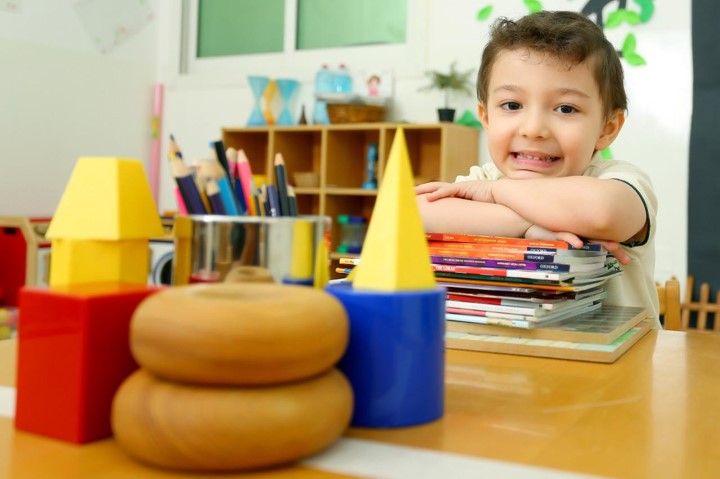
At Deira Private School, we recognize that language is more than just words; it's a bridge that connects cultures, ideas, and opportunities. Our ELL provision is carefully crafted to empower students with the ability to navigate this bridge with confidence and finesse. We understand that language acquisition is a journey that requires patience, guidance, and a supportive environment, which is why our program is tailored to cater to the diverse needs of learners at every stage of their linguistic development.
Our team of dedicated and experienced educators brings passion and expertise to the classroom, ensuring that each student receives personalized attention and guidance. Through a combination of innovative teaching methods, interactive activities, and immersive experiences, we foster a learning environment that not only enhances English language skills but also instills a deep appreciation for the beauty and nuances of the language.
Key highlights of Deira Private School's ELL provision:
As a programme where linguistic proficiency meets cultural enrichment, the DePS ELL provision continues to foster individuals who can articulate their ideas, understand the world, and shape their destinies. Join us in shaping the future with words, as we equip our students with the power to communicate, connect, and thrive in a globalized society.
At Deira Private School (DePS), we are deeply committed to fostering an inclusive educational environment that celebrates diversity and ensures every student has the opportunity to reach their full potential. Our inclusive ethos is rooted in the belief that all students, regardless of their abilities or needs, should be provided with the necessary support and resources to thrive academically, socially, and emotionally.
The aim of the GLOW'D classes is to cater to students with special needs who are experiencing significant gaps in their learning and curriculum. These focused group sessions are designed for Wave 3 Students of Determination (SODs) with Learning Support Assistants (LSAs) to help bridge their learning gaps and foster independence among the SODs.

Deira Private School, extends the counselling service to all the individuals who are a part of the school environment; students, teachers and parents. Like physical health, everyone has mental health and we need to take care of it. The counselling service provides a safe and nurturing approach to all students to explore their barriers and challenges and develop skills needed to overcome them.
To ensure positive mental health to all students and encourage the students to reach their full potential by providing a counselling program that is comprehensive, preventive in design and developmental in nature. Counselling program values the individuality of each student and nurture his/her educational, social, emotional and personal needs.
Anxiety - 8 Ways a Child’s Anxiety shows up as Something Else
Anger - The perception of danger stress or opposition is enough to trigger the fight or flight response leaving your child angry and without a way to communicate why.
Difficulty Sleeping - In children, having difficulty falling asleep or staying asleep is one of the hallmark characteristic of anxiety.
Defiance - Unable to communicate what is really going on, it is easy to interpret the child’s defiance as a lack of discipline instead an attempt to control a situation where they feel anxious and helpless.
Chandeliering - Chandeliering is when a seemingly calm person suddenly flies off the handle for no reason. They have pushed hurt and anxiety so deep for so long that a seemingly innocent comment or event suddenly sends them straight through the chandelier.
Lack of Focus - Children with anxiety are often so caught up with their own thoughts that they do not pay attention to what is going on around them.
Avoidance - Children who are trying to avoid a particular person, place or task often end up experiencing more of whatever it is they are avoiding.
Negativity - People with anxiety tend to experience negative thoughts at a much greater intensity than positive ones.
Over planning - Over planning and defiance go hand in hand in their root cause. Where anxiety can cause some children to try to take back control through defiant behavior, it can cause others to over plan for situations where planning minimal or unnecessary.
If your child has an anxiety disorder, here are some ways you can help:
We all face trauma, adversity and other stresses. Here’s a roadmap for adapting to life-changing situations, and emerging even stronger than before.
A process of adapting well in the face of adversity, trauma, tragedy, threats or significant sources of stress – such as family and relationship problems, serious health problems, or workplace and financial stressors.
Like building a muscle, increasing your resilience takes time and intentionality. Focusing on four core components — connection, wellness, healthy thinking and meaning — can empower you to withstand and learn from difficult and traumatic experiences. To increase your capacity for resilience to weather — and grow from — the difficulties, use these strategies.
Connecting with empathetic and understanding people can remind you that you’re not alone in the midst of difficulties. Focus on finding trustworthy and compassionate individuals who validate your feelings, which will support the skill of resilience.
Self –care is a practice for mental health and building resilience. Promoting positive lifestyle factors like proper nutrition, ample sleep, hydration and regular exercise can strengthen your body to adapt to stress and reduce the toll of emotions like anxiety or depression.
Mindful Journaling, yoga, and other practices like prayer or meditation can also help people build connections and restore hope, which can prime them to deal with situations that require resilience. Avoid Negative outlets and focus on giving your body resources to manage stress
Help others or simply support a friend in their own time of need, you can garner a sense of purpose, foster self-worth, connect with other people and tangibly help others, all of which can empower you to grow in resilience.
Be proactive and as yourself. “What can I do about a problem in my life?” If the problem seem too big to tackle, break them down into manageable pieces.
Move towards your goals. Develop realistic goals and be consistent and look for opportunities for self-discovery.
Keep things in perspective. How you thin can play a significant part in how you feel and how resilient you are when faced with obstacles. Accept that change is a part of life. Maintain a hopeful outlook. An optimistic outlook empowers you to expect that good things will happen to you.
Learn from your past. Remind yourself by looking back at who or what was helpful in previous times of distress and where you’ve been able to find strength.
Getting help when you need it is crucial in building your resilience.
